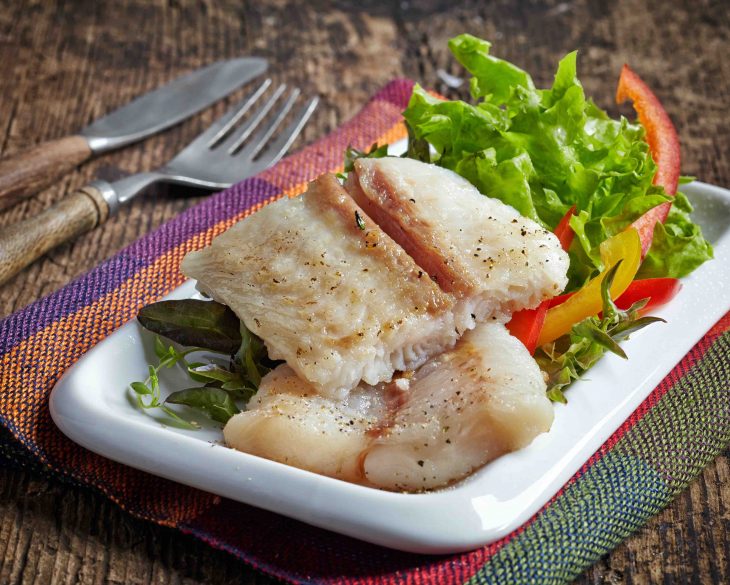
Swai, a popular fish known for its mild flavor and versatility, offers more than just a delicious meal. Packed with essential nutrients, Swai fish is a healthy addition to your diet. In this article, we explore 10 intriguing facts about Swai nutrition, shedding light on its health benefits and explaining why it deserves a place on your plate.
Rich in Protein
Swai is a good source of high-quality protein, which plays a vital role in muscle growth, repair, and overall health. A 3-ounce serving of Swai fish provides approximately 15 grams of protein.
Omega-3 Fatty Acids
Swai contains omega-3 fatty acids, particularly EPA and DHA, which are essential for brain health, heart health, and reducing inflammation in the body. Regular consumption of Swai fish can contribute to a well-balanced omega-3 fatty acid intake.
Low in Calories
Swai fish is relatively low in calories, making it a suitable choice for those watching their calorie intake. A 3-ounce serving of Swai contains approximately 90 calories, allowing for flexibility in meal planning.
Vitamins and Minerals
Swai is a good source of various vitamins and minerals, including vitamin B12, selenium, and phosphorus. These nutrients support energy production, immune function, and the health of bones and teeth.
Heart-Healthy

The omega-3 fatty acids found in Swai fish have been associated with a reduced risk of heart disease and improved cardiovascular health. Including Swai in a balanced diet can contribute to a heart-healthy lifestyle.
Versatile Culinary Options
Swai’s mild flavor and firm texture make it a versatile ingredient in various dishes. It can be baked, grilled, pan-fried, or used in soups, curries, and stir-fries.
Sustainable Farming Practices
Swai is primarily farmed, and many producers employ sustainable farming practices to minimize environmental impact. Look for Swai fish from responsible sources to support sustainable seafood choices.
Low in Mercury
Swai fish is considered a low-mercury fish, making it a safer option for regular consumption. It is suitable for individuals, including pregnant women and children, who need to limit their mercury intake.
Budget-Friendly
Swai fish is often more affordable compared to other seafood options, making it an accessible choice for individuals and families on a budget. Enjoy the nutritional benefits of fish without breaking the bank.
Delicious Flavor
Swai’s mild, slightly sweet flavor appeals to a wide range of palates, making it a great choice for both seafood enthusiasts and those new to fish. With its delicate taste, Swai can be enjoyed by itself or paired with various seasonings and sauces.
Final Word
Swai fish offers a range of nutritional benefits, from being a rich source of protein and omega-3 fatty acids to its versatility in the kitchen. Embrace this versatile fish and explore the various ways to incorporate it into your meals for a flavorful and nutritious dining experience.
Frequently Asked Questions (FAQs)
Can I eat Swai fish if I have a seafood allergy?
If you have a known seafood allergy, it is best to avoid Swai fish and any other seafood products to prevent potential allergic reactions.
Is Swai fish suitable for individuals following a gluten-free diet?
Yes, Swai fish is naturally gluten-free, making it a safe option for individuals with gluten intolerance or those following a gluten-free diet.
Are there any sustainability concerns related to Swai fish farming?
Swai fish farming practices vary, and not all farms employ sustainable methods. Look for Swai fish from reputable sources that prioritize responsible and sustainable farming practices.
Can Swai fish be frozen for later use?
Yes, you can freeze Swai fish to extend its shelf life. Properly wrap it in airtight packaging or freezer bags to maintain its quality and flavor.
How does Swai compare to other types of white fish?
Swai fish is similar to other white fish in terms of taste and texture. It is often compared to catfish or tilapia but with its distinct flavor profile.
Was this page helpful?
Our commitment to delivering trustworthy and engaging content is at the heart of what we do. Each fact on our site is contributed by real users like you, bringing a wealth of diverse insights and information. To ensure the highest standards of accuracy and reliability, our dedicated editors meticulously review each submission. This process guarantees that the facts we share are not only fascinating but also credible. Trust in our commitment to quality and authenticity as you explore and learn with us.


